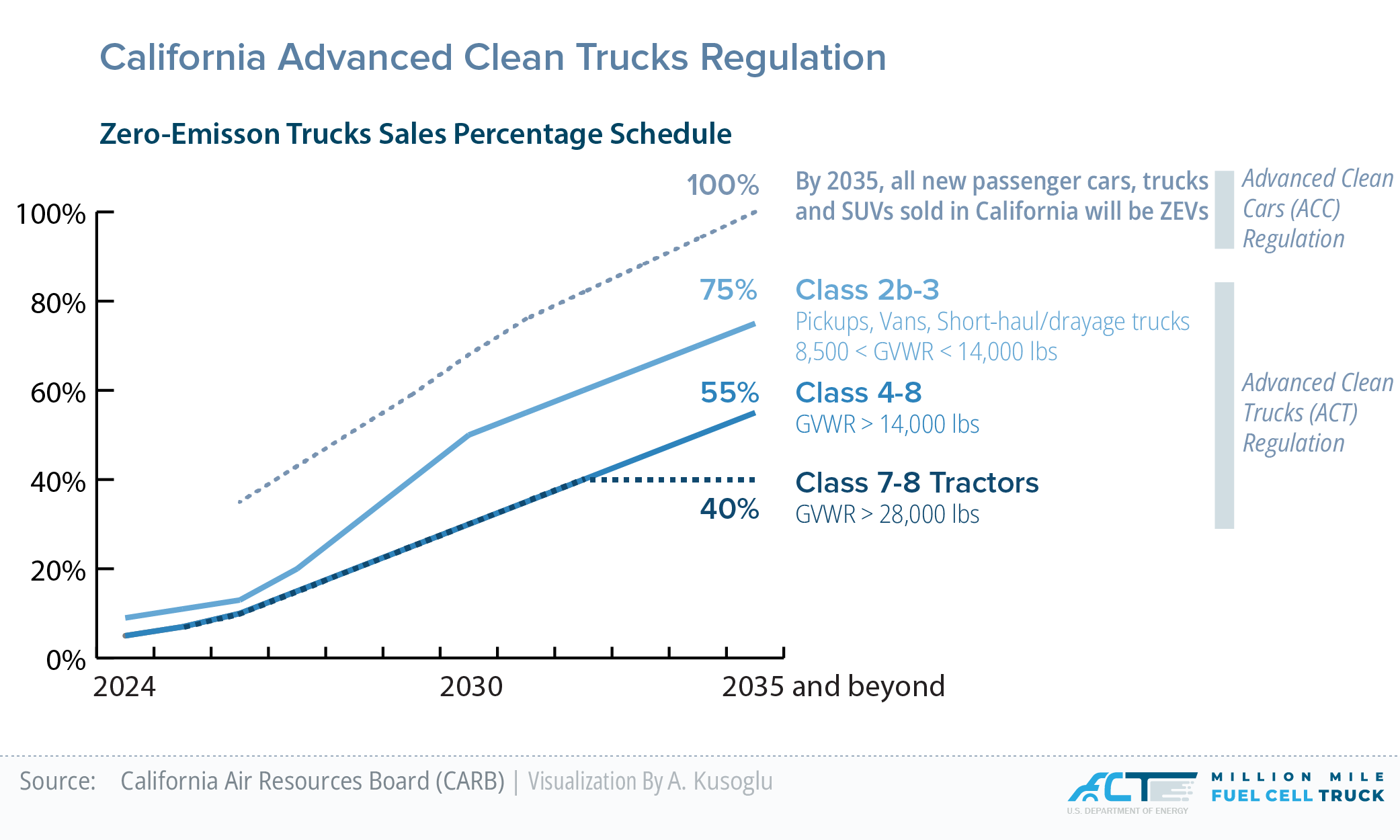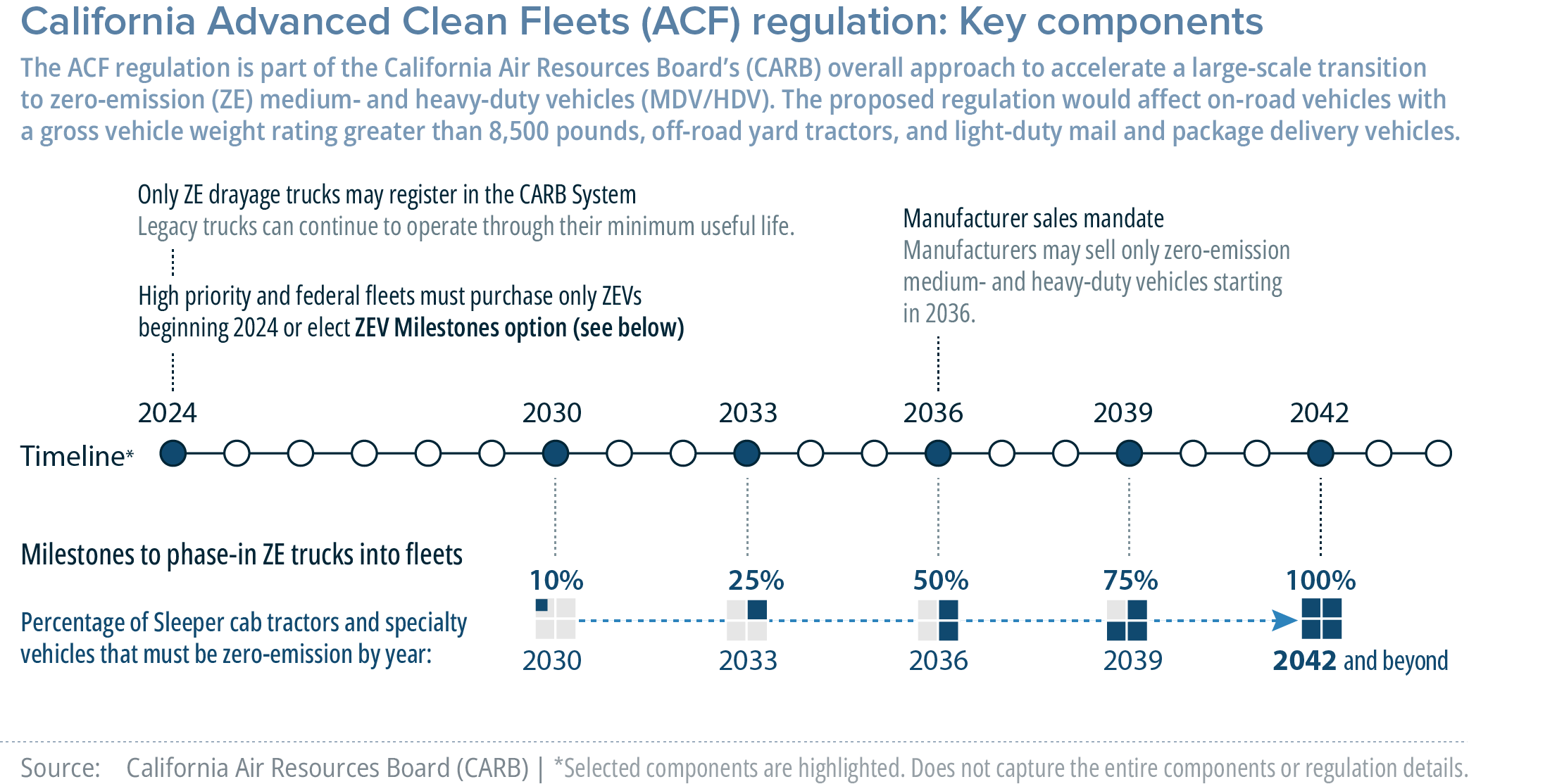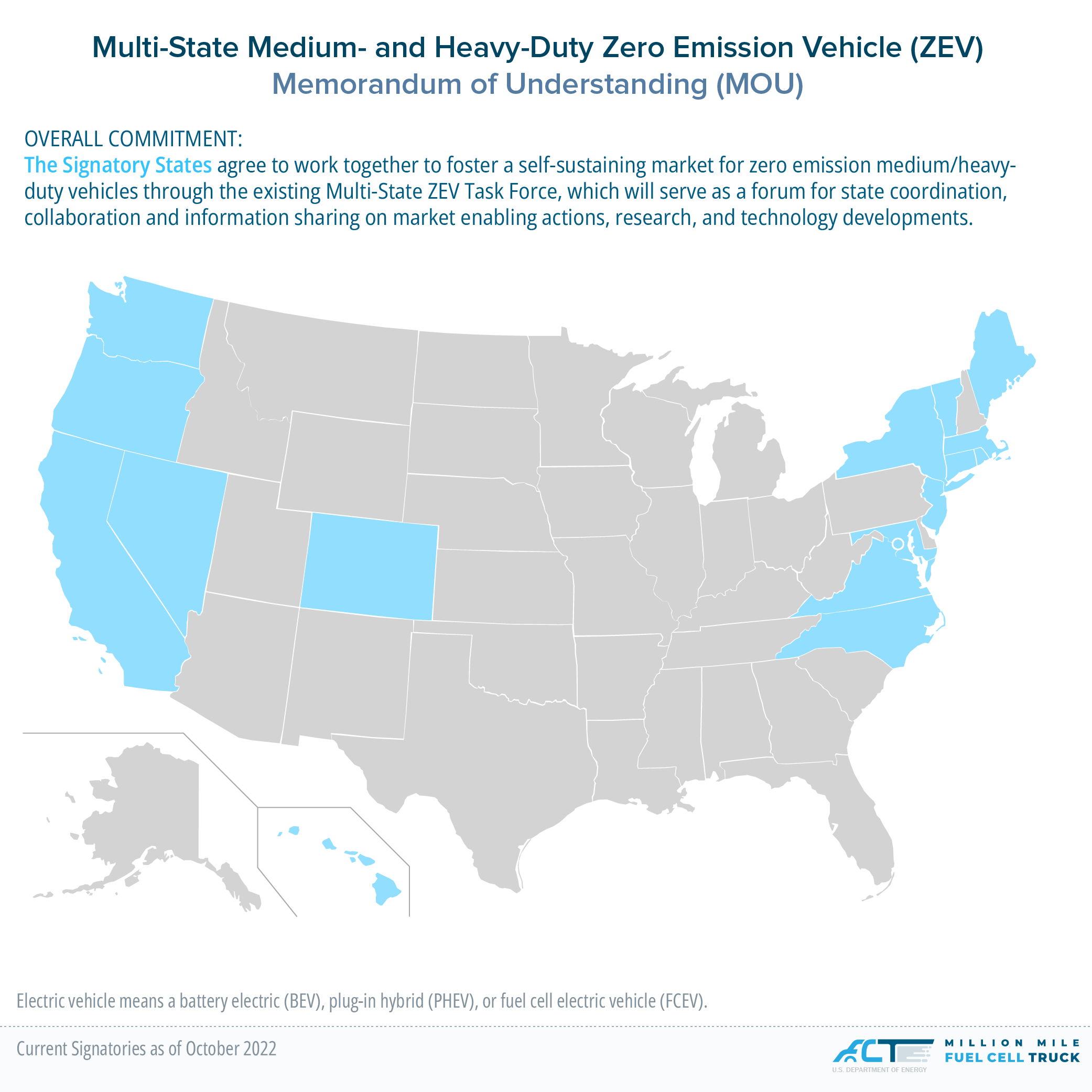Zero-Emission Vehicle (ZEV) Regulations
The increasing focus on decarbonizing transportation stimulated the drafting or adoption of several rules and regulations for promoting zero-emission vehicles, including California's goal to ban the sale of new gasoline cars by 2035 (see the announcement for more information). The primary mechanism for achieving the ZEV target for passenger cars and light trucks is the Advanced Clean Cars II (ACC II) Program, which was approved by the California Air Resources Board (CARB) in August 2022.
Similar efforts have been initiated for trucks and heavy-duty applications to decarbonize freight transportation, which is responsible for a significant fraction of transportation-related emissions. In 2020, California adopted Advanced Clean Trucks (ACTs), a new rule requiring truck manufacturers to transition from diesel trucks and vans to electric zero-emission trucks beginning in 2024.

In conjunction with the ACT regulation, the Advanced Clean Fleets (ACF) regulation requires fleets that are well suited for electrification to reduce emissions through requirements to both phase-in the use of Zero-Emission Vehicles (ZEVs) for targeted fleets and requirements that manufacturers only manufacture ZEV trucks starting in the 2036 model year. The regulation applies to trucks performing drayage operations at seaports and railyards, fleets owned by State, local, and federal government agencies, and high-priority fleets. The ZEV milestones for group 3 vehicles (Class 7 and 8) are illustrated below.link

Stemmed from the recognized need for similar strategies to accelerate the adoption of medium- and heavy-duty trucks (MHDV) as ZEV options, 15 states and the District of Columbia signed a joint Memorandum of Understanding for Multi-State Medium- and Heavy-Duty Zero Emission Vehicles with the overall commitment:
"The Signatory States agree to work together to foster a self-sustaining market for zero-emission medium- and heavy-duty vehicles through the existing Multi-State ZEV Task Force, which will serve as a forum for state coordination, collaboration and information sharing on market enabling actions, research, and technology developments"
The states are committing to work collaboratively to advance and accelerate the market for electric medium- and heavy-duty vehicles, including large pickup trucks and vans, school and transit buses, high-mileage trucks, delivery trucks, and long-haul trucks (big-rigs).link
The figure visualizes these roadmaps showing how different classes of vehicles sold in California will be zero-emission vehicles on a year-by-year basis.
This MOU recognizes the role of heavy-duty vehicles in GHG emissions, acknowledge it as an environmental justice problem disproportionally impacting the disadvantaged communities located near freight corridors, ports, and distribution centers, and the essential role of the electrification of the transportation sector by means of battery electric (BEV), plug-in hybrid (PHEV), or fuel cell electric vehicle (FCEV) to achieve the GHG emission reductions needed to avoid the adverse effects of climate change, including the harmful emissions of particulate matter and toxic air contaminants that adversely impact health.
Currently, 18 states are signatories to this MOU and have adopted this regulation to commit to collaborative action to accelerate consumer adoption of vehicles. States that signed the MOU are: California, Connecticut, Colorado, Hawaii, Maine, Maryland, Massachusetts, New Jersey, New York, North Carolina, Oregon, Pennsylvania, Rhode Island, Vermont, Washington, and more recently, Virginia and Nevada.

References
- California Air Resources Board (CARB) (link, link)
- CARB Advanced Clean Trucks Regulation (link)
- Memorandum of Understanding for Multi-State Medium- and Heavy-Duty Zero Emission Vehicles (link)
Note: This piece is written for educational purposes and M2FCT assumes no responsibility or liability for any errors or omissions in the content of this site. Interested readers should check the links for updated information about the regulations and policies which may change over time.